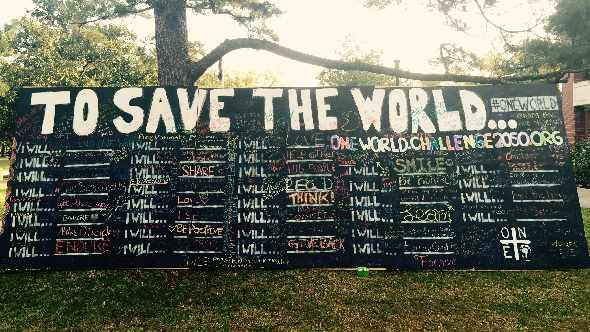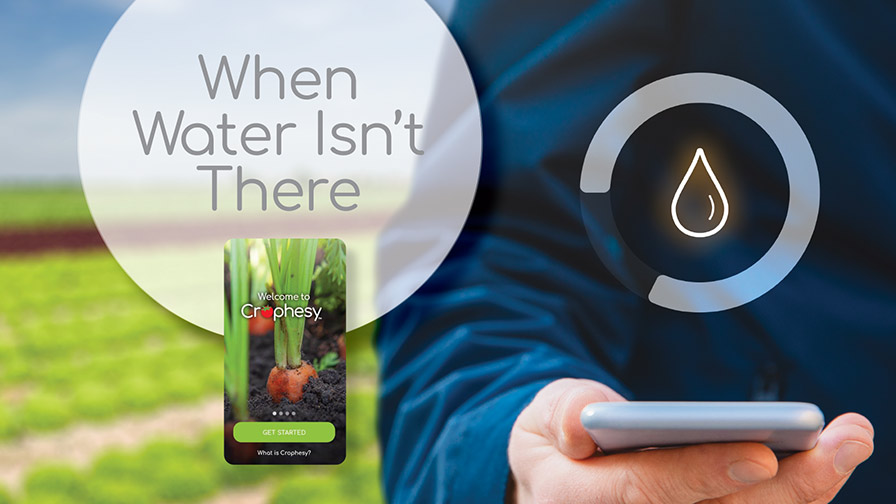Today’s Youth Set To Sustain The World [Opinion]
If the University of Florida’s “Solution Six” are any indication, the future of the world is in good hands.

Photo by Mary Hartney
These unique students are thinking of innovative ways to meet the challenges of sustaining 9+ billion people on Earth by 2050.
I had the privilege of hearing them speak at One World, a UF event, which brought university and high school students, faculty, Extension leaders, private industry, and policymakers together for a day of activities designed to foster collaboration on global sustainability issues – how we can work together to address the food, energy, housing, and other needs of a growing world.
My personal interest in the program is two-fold — I had been following the program since it was conceptualized and I know one of the Solution Six.
In April 2012, I was at a Wedgworth Leadership Institute program seminar when Dr. Teri Balser, then the Dean of UF’s College of Agricultural and Life Sciences, made a dynamic presentation on “New Approaches to Solving Global Issues.”
After her presentation, I invited her to join a group of us sitting on the grass eating lunch. We talked more about the plans for what became the UF/IFAS Challenge 2050 Project. Its eventual objective is to develop human capacity to meet the needs associated with a population projected to exceed 9.6 billion by the year 2050. As an ongoing certificate program for undergraduates in any degree program, it seeks to build leadership across five major systems — food, environmental, economic, social, and health — that are necessary for the well-being of humanity.
The program’s website says it this way: “The Challenge 2050 Project is different. We address issues that do not have answers. Our world is in a period of rapid globalization and change, with increasing and ever-changing demands placed on agricultural and environmental systems. Accounting for agricultural production, energy consumption, environmental impact, water conservation, and several other variables will be key if we aspire to sustain the health and well-being more than 9.6 billion people by 2050.”
Six For Six
Six students were selected to give presentations at the One World event on March 13. One of the “Solution Six,” as they were dubbed, was Nathan Carson, a Food & Resource Economics major who received the Florida Fertilizer & Agrichemical Associations R. Eldred Carpenter Jr. Scholarship Award in 2014. I’ve followed his academic career since then and was thrilled to learn he was one of six students whose ideas were so impressive they were invited to present their innovations at a campus wide event. Thanks to a Good Growth Plan grant from Syngenta, each of the “Solution Six” students received $500 and a chance for their idea to receive the top award of $1,500.
If you want to feel good about the future of our world, spend a day listening to students’ share their passions and their ideas. The Solution Six covered a lot of ground – everything from solar-powered portable water purification systems to microloans for farmers in India to novel mosquito traps and networks to facilitate connections and collaborations to nonprofit organizations fostering corporate social responsibility to individually powered electric generators.
Up For The Challenge?
If you are interested in helping Challenge 2050, Tamiko Gaines, director of Institutional Relations and Development with HM.Clause, is willing share ideas on how to get involved. Contact me to be put in touch with her.
Click here to read more about HM.Clause’s commitment to UF’s Challenge 2050.
In emceeing the One World event, Dr. Tony Andenoro, UF assistant professor of leadership education within the Department of Agricultural Education, and coordinator of the campus-wide Leadership Minor, quoted a UF student as pledging: “We won’t stop fighting to make our world better than it was yesterday.”
Based on what I saw and heard from the Solution Six at One World, tomorrow’s world promises to be a much better place. Congratulations to all on a super event.
The ongoing UF/IFAS Challenge 2050 Project information is at Challenge2050.ifas.ufl.edu.










